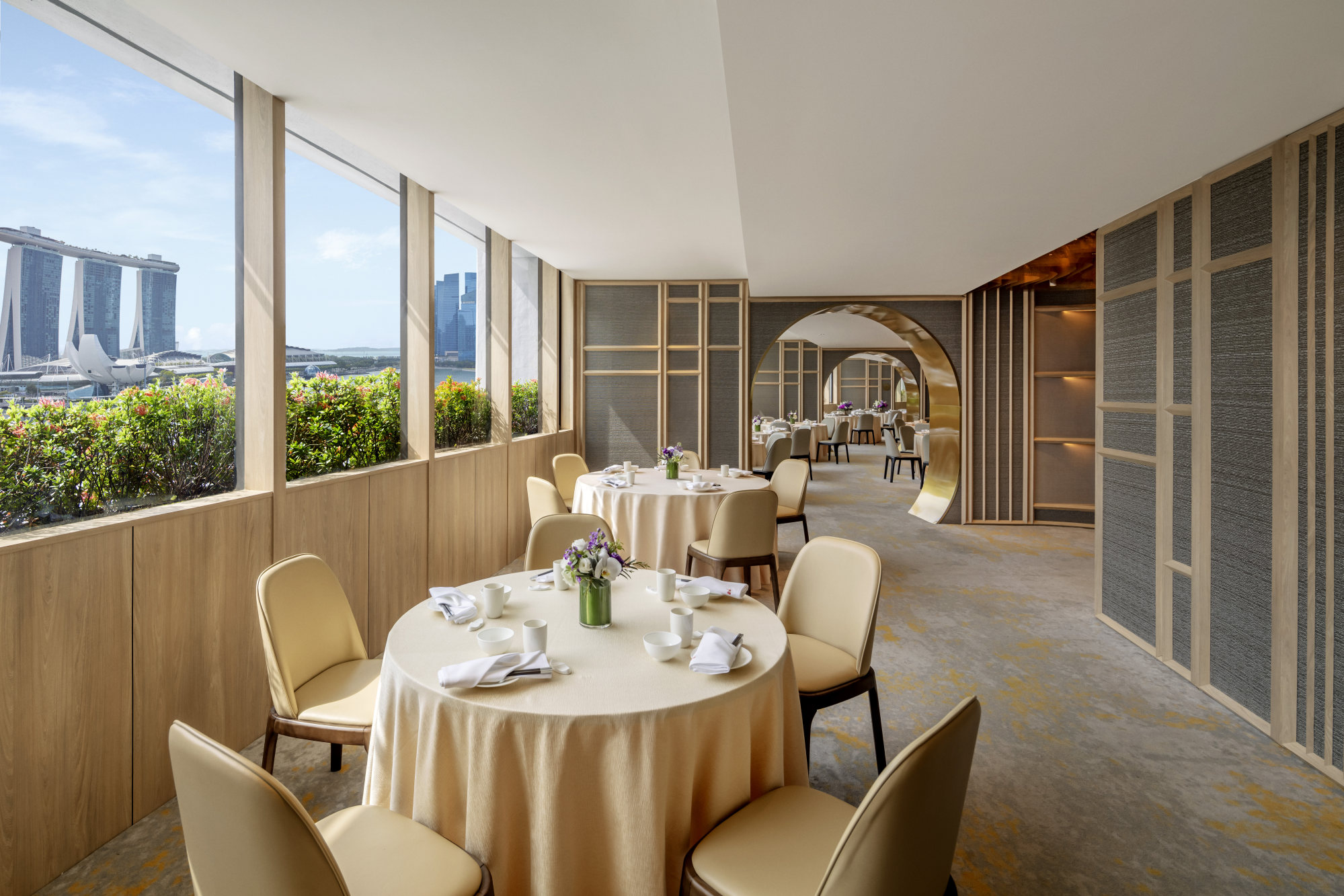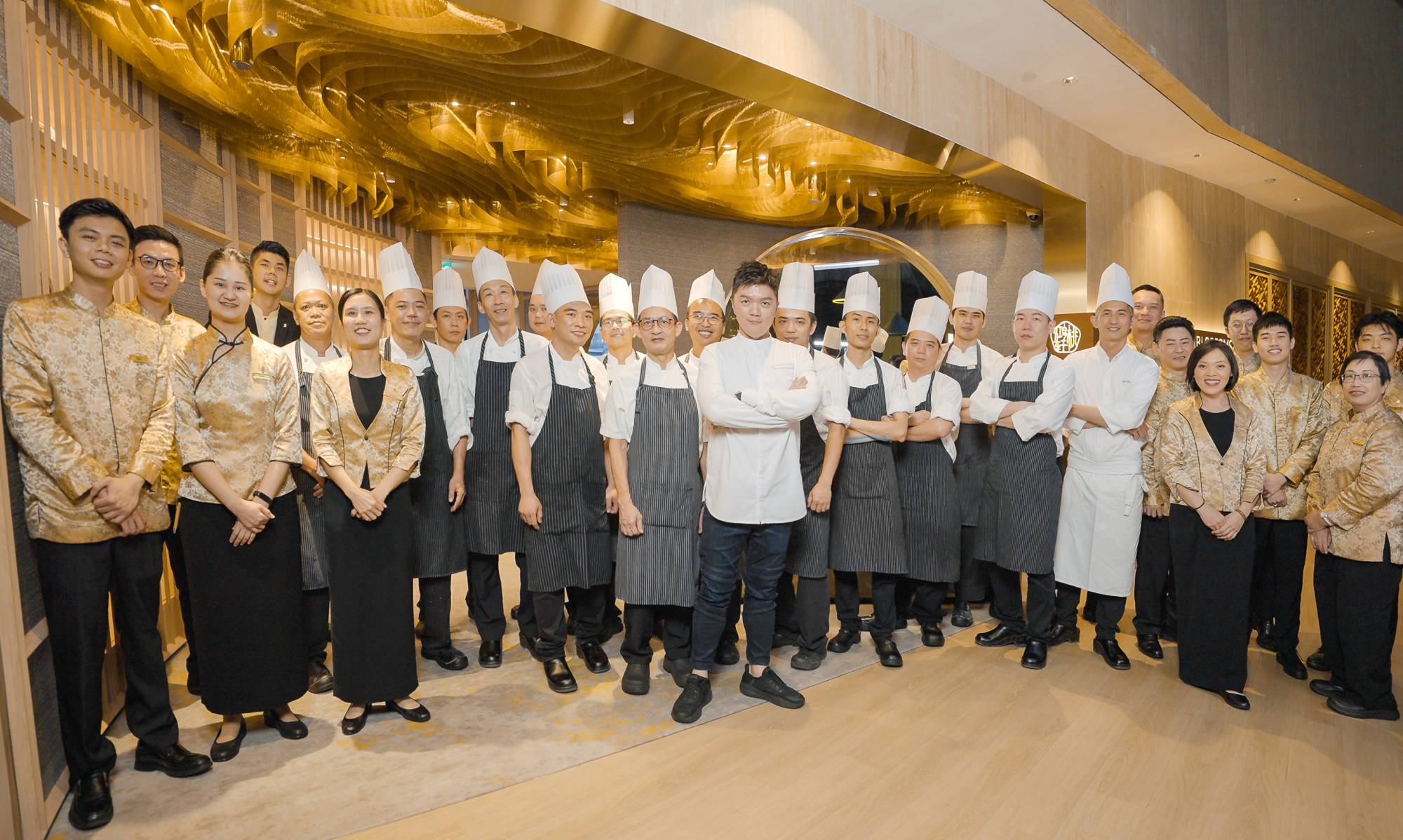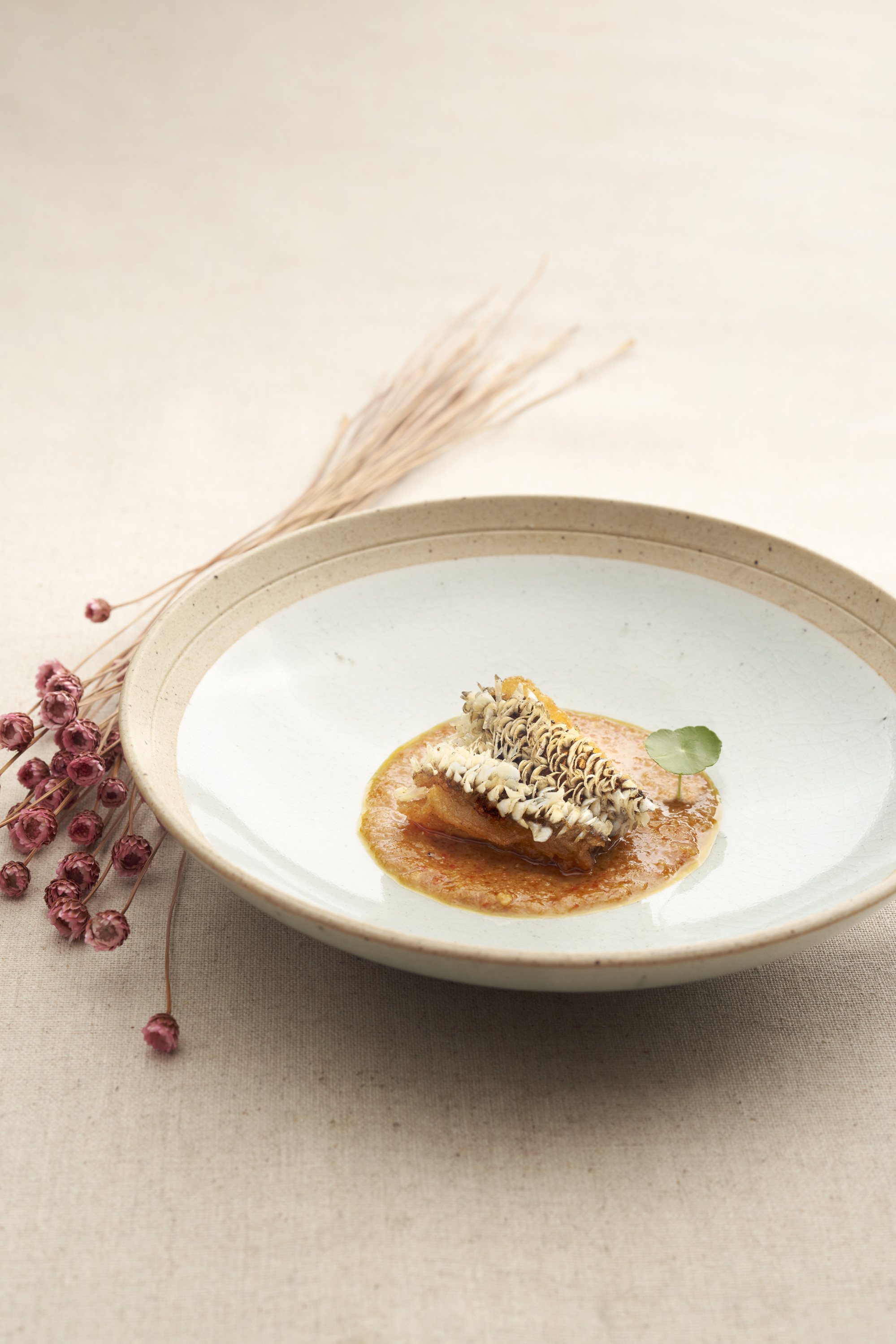No Michelin star? No problem – chef of Peach Blossoms in Singapore on forging his
Chong was not optimistic about his chances of receiving a star, but decided to go in the end.
“In the ballroom, when fellow chef friends came to say hello, the camera popped up sharply at me and, just as fast, it left knowing that I was not part of [the winners],” he says.
He was correct: Peach Blossoms did not receive a star that night.

Michelin star or not, Chong, 41, has put in a lot of effort to establish himself on the gastronomic scene.
He has turned Peach Blossoms into a contemporary Chinese restaurant and it has seen a threefold increase in revenue since the start of his tenure in 2017 – when the hotel was still called the Marina Mandarin Singapore.
Despite great reviews, Michelin’s inspectors did not think it was enough – but over the past two years, while many Michelin-star restaurants have struggled with business, the queues to get into Peach Blossoms have only grown longer.
“It shows that I am going in the right direction. And no matter how busy I am in the kitchen, I always make a point of checking on guests in the dining room to see how they are reacting,” says Chong.
“Even if it’s just a knit of the brow, I’d have my staff find out more right away. The comments we received would be added to my contact list, right next to diners’ names, so the next time they came, I could tailor their experience.”
When I pointed out that something was wrong, they told me to cook [it] myself
On June 18, when the Michelin Guide plans to announce its selections for 2024, Chong will find out if he has done enough in the past 12 months to earn that coveted star.
“When I took over [in 2017], I made the decision to do away with the buffet,” he says. “In hindsight, that was the riskiest decision I’ve made in my career. I could have been asked to go. ”
Then in his mid-30s, Chong’s vision for a modernised, fresh take on Chinese cuisine did not sit well with the restaurant’s long-time crew.
“When I pointed out that something was wrong, they told me to cook [it] myself. Thankfully, I could handle the cooking,” he grins.
Regulars stopped coming when he eliminated the buffet, which caused sales to drop by more than 60 per cent. Despite this, he did not give up.

His perseverance did not go unnoticed: Chong was crowned rising chef of the year at the Singaporean culinary event Asian Masters 2019 – the restaurant’s first honour in 30 years – and Asian cuisine chef of the year at the World Gourmet Awards 2019.
“I just told him the food was edible. There was just too much of [his mentors] Sam Leong and Yong Bing Ngen’s influences in his plates,” Yip says with a chuckle, referring to two stalwarts of Singapore’s Chinese culinary scene. “It was lacking in personal style and there was nothing memorable.”
Chong – who hails from Negeri Sembilan, Malaysia, on the Malay Peninsula’s southwest coast, a region known for hakka mee (minced pork noodles) and siew pau (barbecued pork buns) – came to Singapore to find restaurant work in his late teens and refined his skills under the tutelage of Yong and Leong.
Chong says that since he had never formally trained in a traditional Chinese restaurant, it was Yip who taught him about the nuances of the cuisine and how to layer flavours. With his help, Chong developed a modern Chinese cuisine that also reflects his upbringing.

Towards the end of the meal, he serves a sweet-tangy buah kedondong (great hog plum) sorbet palate cleanser, to remind diners of the region and its flavours.
Chong is now much more intentional when it comes to incorporating Southeast Asian touches in his menu. “I am passionate about these ingredients, and I want to find a new age and international audience for the modern Chinese cuisine I am presenting.”
Chong often dines at restaurants that specialise in contemporary Asian cuisine to better understand the heritage flavours brought by Chinese migrants to Singapore and the surrounding region, and how to give them an uplift in his dishes.
It is why he uses premium Asian produce to prepare dishes on Peach Blossoms’ menu….
Read More: No Michelin star? No problem – chef of Peach Blossoms in Singapore on forging his
2024-06-04 23:15:10
